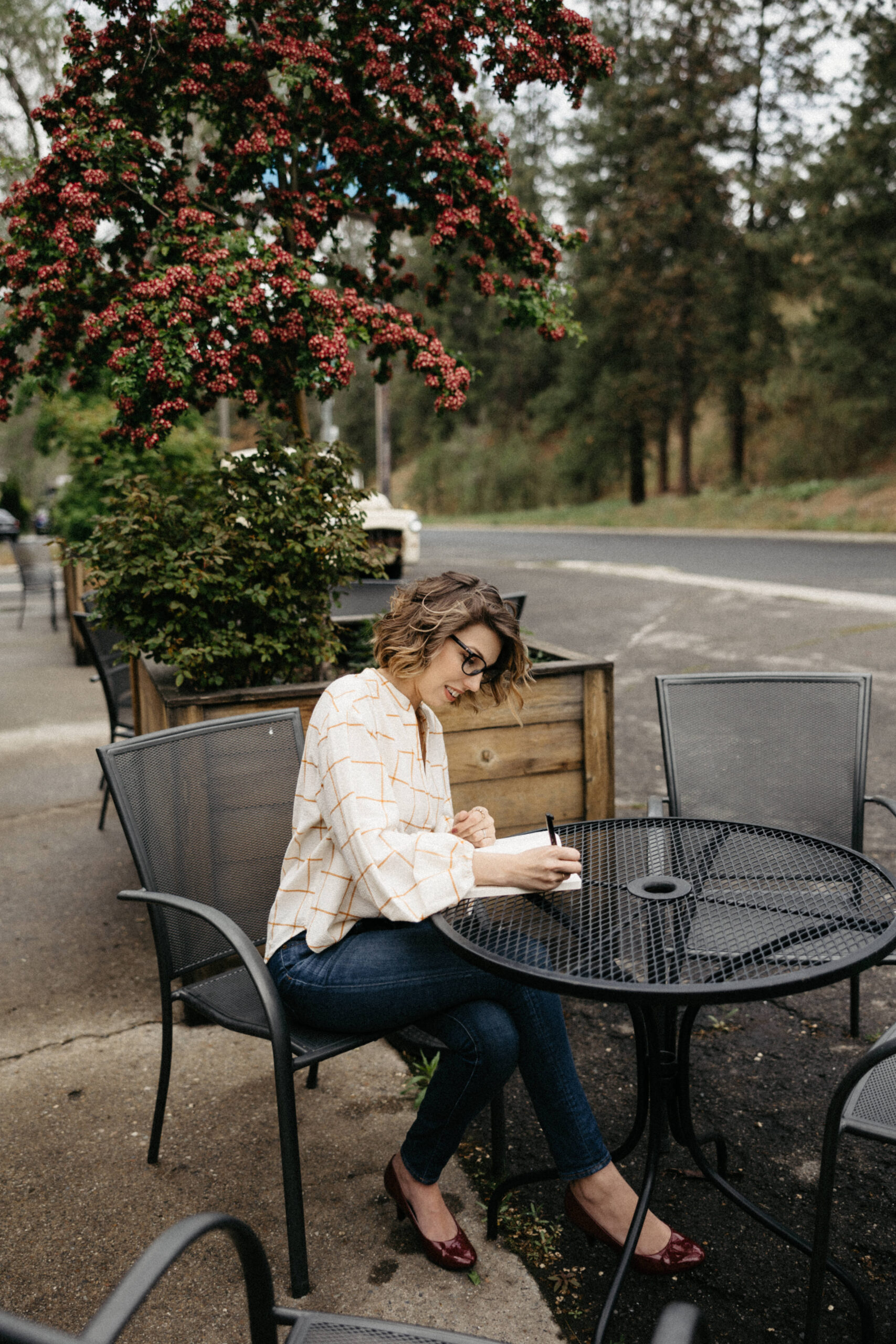I guess it’s how I came here: carrying the questions of my ancestors and the mystic trust, too. Which of them were lawyers? Which of them shamans? Because I can escape neither.
My earliest memories are of totalizing faith. Utter confidence in God’s existence, God’s love, God’s particular devotion, God’s humor, God’s sadness. I did not separate the world into what is God’s and what is not, it was all God’s. He made it. He loved it. He was never far from any of it.
Now that I know me a little more, it seems inevitable that I would wring this faith through inquiry. Sometimes I wonder what took me so long. But at 14, hormones swirling through my bloodstream like paint that always ends up making brown, I finally heard the slithering voice loud and clear where perhaps it had once been a whisper: “Did God really say?”
Well. Did he? My skeptic cleared her throat.
What made me think God was so in love with me that he laughed at all my jokes and wanted the seat next to me in the car? Why was I so special? How could I be sure that God was happy with my petty, confrontational, cowardly attempts at being human? I could yell at my own mother and cry to get off the rollercoaster. What a mess.
With this introspection, teachings about a God whose anger led his love made sense. I’d be angry, too, if I had to put up with me. I’d cycle through lots of emotions.
Annoyance.
Apathy.
Disgust.
Frustration.
Sometimes pity. Probably. But mostly out of obligation. Because I promised I’d save this species after all, even if this one barely seemed worth it anymore.
The more faithful I tried to be, to curry favor, to apologize to my creator, the less faith I could hold onto. I became more afraid, more ashamed, and less able to sense God with me in the car or otherwise. Why would God want to be with me at all?
Even after leaving the place that taught me most about this Angry God, I struggled to feel safe which meant I struggled to believe I was loved.
My new faith was—as any good lawyer would insist—in God’s contract. He is just. He won’t lie. He said he’d save me if I did x so he will. He has to. That’s what I had been taught real love was: commitment. God keeps promises so he’ll keep you, wretched worm that you are. I held God to his contract with my fists tight against his throat. Come on, you said it.
Saved, but un-beloved. What an eternity that will be.
I tried my best to be okay with it for many years. Messages about God’s eager kindness and delightful love met my inner skeptic whose voice had become a looping refrain and I started to believe that it was me. That God felt that way about other people—maybe even most people, maybe even every other person—but not about me.
So I could affirm it in others, enthusiastically, genuinely, with passion and prose that comes from something you really know deep down. But not in myself. Every time I tried, my skeptic reminded me to sit down, this message probably isn’t for you.
But I come from shamans, too.
I dug myself further into a theology that made room for everyone but me and hoped that I could sneak in through the back door, but it was a pit. No doors. And my own words of affirmation etched on the walls were an insult. Until my mystic read them—she looks for her birthright everywhere.
She started quiet, too. Hey, look there, didn’t God say that?
Her voice felt familiar. Like a memory and a relative. In the pit where the skeptic argued her case, the mystic stood up, too and shrugged. I had to be taught that I was unlovable, but to believe I was loved just meant remembering. We don’t have to know why or how, she said, but we know.
And there are annoyingly few rebuttals for a knowing. All of them are rather bleak. So up against the wall with the Good Words on them, my skeptic had to throw her hands up and say, “fine.” Turns out that’s the judgement, the free will, the burden of the knowledge of good and evil. A choice between stories—what did God say?
If the fear came through my head, the hope came through my gut.
They meet, then, in my heart where both skepticism and mysticism are my friends. I am proud of my skeptic for asking the questions I might otherwise be too afraid to ask. I’m grateful to her for driving me into the darkness because I always find the light is there, too and I wouldn’t know it if I didn’t go. And I am in awe of my mystic for her steadfast confidence. I’m grateful to her for being bold in her trust and keeping me pinned to the truth of my belonging.
When the two of them go into a cave together I just know we’re going to find diamonds.
So now I trust and I question and I know I’m being faithful. Faith—my faith anyway—isn’t an antidote to fear, it’s a wrestling, a dance. It’s arguments in pits and an invitation to sabbatical. It is timid and bold, a freedom and submission, a choice and very much not one.
For lots of different reasons and in lots of different ways, I wonder What did God say anyway? and my skeptic and my mystic look at each other and smile.



Leave a comment